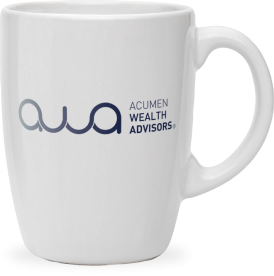The Fiduciary Standard
Acumen Wealth Advisors, a Registered Investment Adviser, is held by law to the highest standard of responsibility to our clients. As a fiduciary, it is an investment adviser’s responsibility to provide fair and full disclosure of all material facts and to act solely in the best interest of each of our clients at all times. This fiduciary duty is the underlying principle for Acumen’s Code of Ethics. Under the Investment Advisers Act of 1940, investment advisers are regulated by the Securities and Exchange Commission (SEC) and held to the fiduciary standard requiring RIAs to always act in their clients’ best interests. The SEC regulates the fiduciary standard and encompasses these major principles:
- Always putting the clients’ interests first
- Acting with utmost good faith and loyalty
- Providing full disclosure of all important facts
- Not misleading clients
- Disclosing any potential conflicts of interest
Fiduciaries have a duty to care, which means they are committed to continually monitor a client’s financial situation and uphold the highest ethical standards throughout the relationship. Fiduciaries follow a prudent due diligence process when making investment recommendations in the client’s best interest and thoroughly explain details, so the client understands why the recommendations were made. For a fiduciary, this may mean recommending a strategy that results in lower fee revenue for the firm because it’s in the best interest of the client.
Potential Benefits of a Relationship with a Registered Investment Adviser
Fiduciary Standard versus Suitability Standard
Some advisors operate under the suitability standard which states financial professionals must only fulfill an obligation to recommend investments suitable for their client. For financial advice to be considered suitable, the financial professional must only have an adequate reason to believe a recommendation fits the client’s financial needs and situation at that time. These recommendations are not required to be in the client’s best interest. Once a transaction takes place, their duty to a client’s investments ceases and these financial professionals are not required to continue monitoring the client’s financial situation over time.
If two comparable investment products are available for a client and one has a higher commission:
An investment advisor held to the fiduciary standard cannot recommend the more expensive investment because paying a higher fee would not be in the client’s best interest.
An investment professional, operating under the suitability standard, would be allowed to recommend the more expensive product provided they believe it is suitable for the client.
The suitability standard can cause conflicts of interest between an investment professional and a client because these broker-dealers can be incented to sell their own products ahead of competing products that may have lower fees. Many times, a broker’s loyalty lies with the broker-dealer where he or she is employed, while a fiduciary’s loyalty always lies with the client.
Publicly Disclosed Details of Financial Advisors
Independent Registered Investment Advisers (RIAs) are required to publicly disclose details about their firm and register with the Securities and Exchange Commission (SEC) and any applicable state securities authorities by filing a Form ADV. RIAs are required to provide a summary of material changes to clients annually. When hiring an independent adviser, request and read thoroughly both parts of the adviser’s Form ADV. You may review an adviser’s Form ADV, including Acumen’s, on the Security and Exchange Commission’s Investment Adviser Public Disclosure (IAPD) website at www.adviserinfo.sec.gov.

Let us help you create a
roadmap to Invest Intentionally®.
Learn how we simplify financial complexities so you can focus on what matters most.